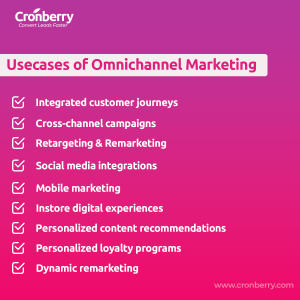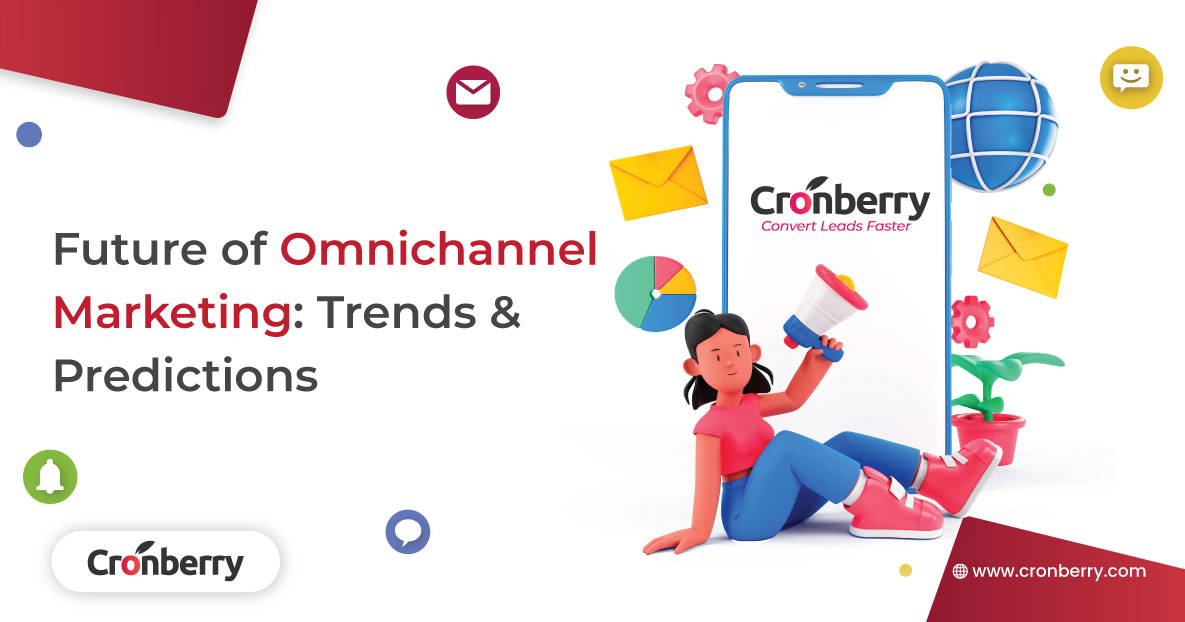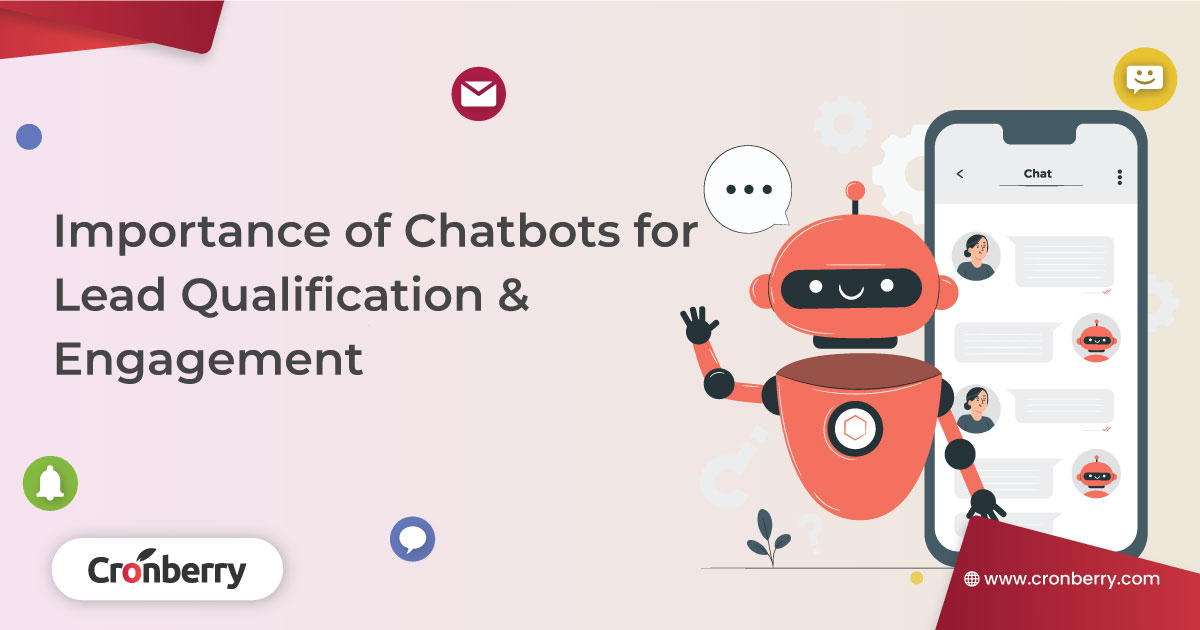“The future of marketing is all about delivering seamless and personalized experiences across multiple channels.” – John Doe, Marketing Expert
In today’s digital age, businesses are constantly striving to engage customers and stand out from the competition. Omnichannel marketing has emerged as a game-changer, allowing businesses to create a consistent and interconnected experience for customers across various touchpoints. In this article, we will explore the components of omnichannel marketing, discuss its use cases, and delve into the latest trends and predictions that will shape its future.
I. Understanding Omnichannel Marketing
Omnichannel marketing refers to the integration of multiple channels, both online and offline, to provide a seamless and personalized experience for customers. It focuses on delivering a consistent message and brand experience across various touchpoints, such as websites, mobile apps, social media platforms, and physical stores.
II. Components of Omnichannel Marketing
Customer Data Management:
“Without data, you’re just another person with an opinion.” – W. Edwards Deming
Effective omnichannel marketing relies on robust customer data management. By leveraging customer data, businesses gain valuable insights into preferences, behaviors, and purchase patterns. These insights drive personalized and targeted marketing campaigns.
Seamless Channel Integration:
“The customer’s perception is your reality.” – Kate Zabriskie
To deliver a seamless omnichannel experience, businesses must ensure that channels are integrated seamlessly. This includes aligning messaging, branding, and user experience across all touchpoints, enabling customers to transition effortlessly between channels.
Personalization and Targeting:
“Personalization is not a trend; it’s a consumer expectation.” – Tiffani Bova
Omnichannel marketing thrives on personalization. By leveraging customer data, businesses can create highly targeted and relevant messaging, tailored to individual preferences. Personalization boosts engagement, customer loyalty, and ultimately, sales.
Marketing Automation:
“Automation frees up time for strategy, creativity, and innovation.” – Adam Stewart
Automation plays a pivotal role in omnichannel marketing. By automating repetitive tasks, businesses can focus on strategic initiatives and delivering exceptional customer experiences. Marketing automation streamlines campaign management, lead nurturing, and customer segmentation.
III. Use Cases of Omnichannel Marketing:

Integrated Customer Journeys:
“Customer experience is the new marketing.” – Steve Cannon
Omnichannel marketing allows businesses to map and optimize customer journeys, ensuring a seamless experience from discovery to purchase and beyond. By providing consistent messaging and a unified brand experience, businesses can build strong customer relationships.
Retargeting and Remarketing:
“The best marketing doesn’t feel like marketing.” – Tom Fishburne
Omnichannel marketing enables businesses to retarget and remarket to customers who have shown interest but haven’t made a purchase. By delivering personalized and relevant messages across channels, businesses can entice customers to convert and drive revenue.
Cross-Channel Campaigns:
“The power of integrated multi-channel marketing is its ability to create a seamless, consistent, and personalized customer experience.” – Julie Neumark
With omnichannel marketing, businesses can synchronize campaigns across multiple channels, amplifying their reach and impact. Consistency in messaging and branding ensures a cohesive and memorable brand experience for customers.
Social Media Integration:
Social media platforms have become key channels for customer engagement. By integrating social media into your omnichannel marketing strategy, you can connect with customers, build brand awareness, and drive conversions. For example, you can leverage social media to share personalized offers, run targeted ad campaigns, and provide customer support through direct messaging.
Mobile Marketing:
With the rise of smartphones, mobile marketing has become essential for reaching customers on the go. Optimizing your marketing efforts for mobile devices ensures a seamless experience across channels. You can leverage mobile apps, SMS marketing, push notifications, and location-based services to deliver relevant and timely messages to your target audience.
Email Marketing Automation:
Email continues to be a powerful channel for nurturing customer relationships. By integrating email marketing automation into your omnichannel strategy, you can send personalized emails based on customer behavior and preferences. Automated email sequences, triggered by specific actions or milestones, can guide customers through their journey and keep them engaged.
In-Store Digital Experiences:
Omnichannel marketing extends beyond digital channels. It also encompasses in-store experiences. By incorporating digital technologies within physical stores, such as interactive displays, augmented reality experiences, or mobile apps, you can enhance customer engagement and provide a seamless transition between online and offline interactions.
Personalized Content Recommendations:
Leveraging customer data and machine learning algorithms, you can deliver personalized content recommendations across various touchpoints. By analyzing past behavior, purchase history, and preferences, you can present relevant product suggestions, curated content, and tailored offers that resonate with each individual customer.
Customer Loyalty Programs:
Omnichannel marketing allows you to create and manage customer loyalty programs that span multiple channels. By offering exclusive rewards, personalized discounts, and special promotions, you can incentivize customer loyalty and encourage repeat purchases. Integrated loyalty programs provide a cohesive experience, regardless of whether customers are shopping online or in-store.
Dynamic Remarketing:
Dynamic remarketing enables you to retarget website visitors with personalized ads based on their browsing behavior. By dynamically displaying products or services they previously viewed or added to their cart, you can re-engage potential customers and drive conversions. This strategy keeps your brand top-of-mind and increases the chances of completing a purchase.
IV. Trends and Predictions for the Future of Omnichannel Marketing
AI and Machine Learning:
Artificial Intelligence (AI) and Machine Learning (ML) will revolutionize omnichannel marketing. These technologies can analyze vast amounts of customer data, predict behaviors, and automate personalized messaging. AI-powered chatbots and recommendation engines will enhance the customer experience.
Voice and Visual Search:
Voice and visual search are gaining momentum. Integrating these technologies into omnichannel marketing strategies will be crucial. Optimizing content for voice queries and visual search will help businesses capture the attention of voice-activated assistants and visually-driven search platforms.
Hyper-Personalization:
The future of omnichannel marketing lies in hyper-personalization. Advanced analytics and AI-driven insights will enable businesses to deliver highly personalized experiences in real-time. Tailoring offers, recommendations, and content to individual preferences will drive engagement and customer satisfaction.
Integration of Augmented Reality (AR) and Virtual Reality (VR):
AR and VR technologies will transform the omnichannel landscape. Businesses can leverage AR/VR to showcase products, offer virtual try-ons, and create immersive brand experiences. This will enhance customer engagement and provide unique interactions.
As we move forward, the future of omnichannel marketing is promising. By embracing the components of omnichannel marketing, leveraging customer data, and staying ahead of emerging trends, businesses can foster strong customer relationships, drive revenue, and gain a competitive edge.
SWITCH TO INDIA’S SMARTEST CRM-LMS SOFTWARE
If you want to take your sales process to the next level, you need a powerful sales automation algorithm. Cronberry helps businesses streamline their sales process, increase conversion rates, and drive more revenue for your business.
Create campaigns, landing pages, web catalogues, track team performance and so much more. Unlock a more refined way of connecting with the target audiences via Emails, SMS, In-App messaging, and Push Notifications, thereby organizing a segmented strategy for imparting a tailored way of interaction. Segmenting users as per their behavioral activities, engaging them, nurturing, and retaining them thereafter was never this easy before. We believe in results and we’ve designed a complete package of CRM & Lead Management Services (LMS). It’s the time to make a difference.












